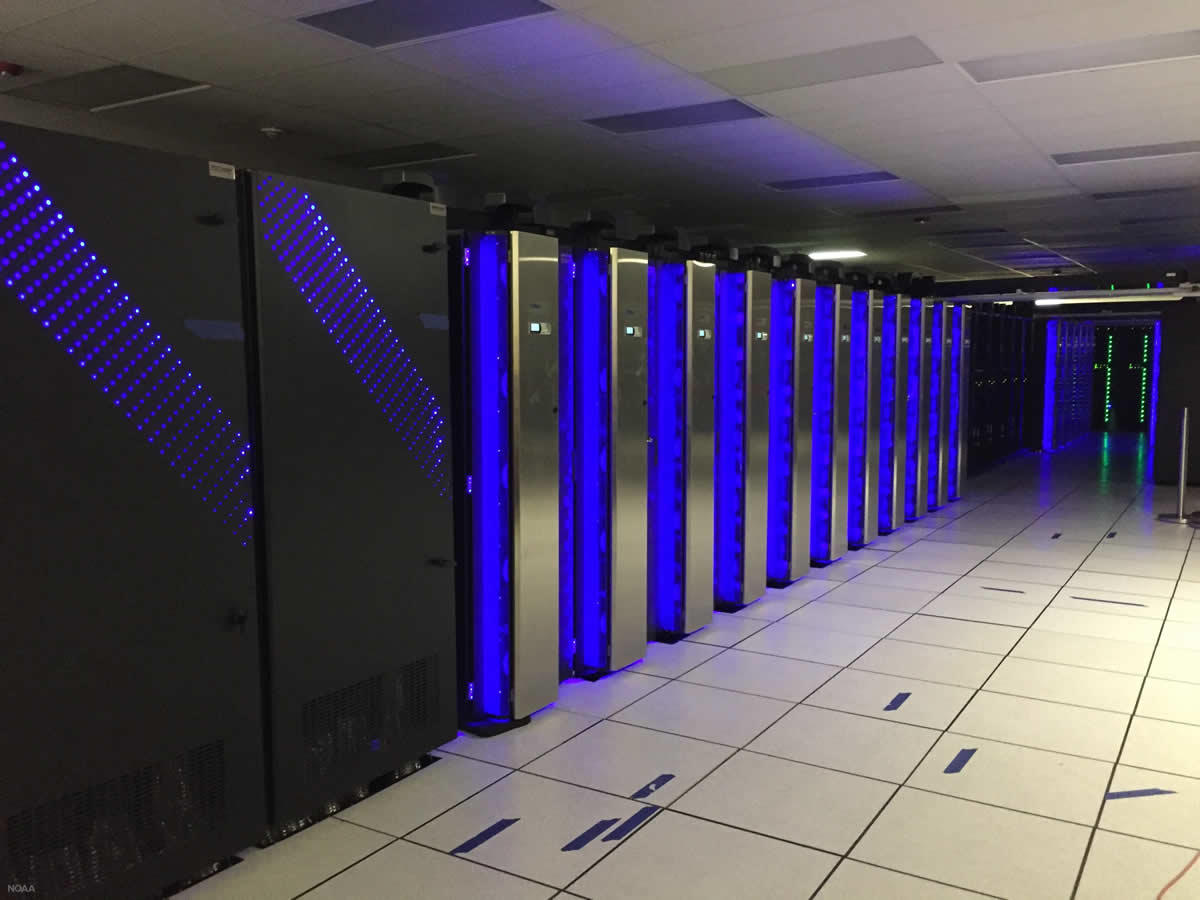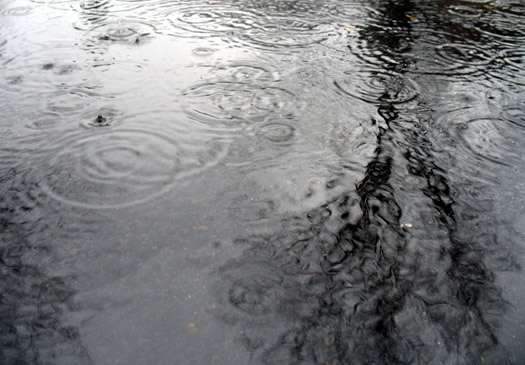Very well acquainted, too, with matters mathematical, they are the very model of a modern forecast meteorological

Sometimes the models can't agree on what the picture's going to look like.
We're happy to welcome Jason Gough to AOA as a contributor. You no doubt know Jason from his many years as a meteorologist on TV here in the Capital Region. He's going to help us nerd out on some local weather stuff. Got a question about how local weather works? Send it along!
If you watched me over the years for your weather forecasts on even a semi-regular basis -- and thank you if you did! -- you may have noticed that when winter storms came into the mix, you heard something like: "I'm tracking the storm, but the models don't agree on things just yet. Still a few days to sort it all out."
The models? What's that all about?
The models
When Greg from AOA and I were talking about this via email, he said he had in his head something like the two old guys in the balcony on The Muppet Show, Statler and Waldorf, arguing over the forecast. One says 'snow' and the other mocks him dismissively. [Greg: I will be highly disappointed if this isn't the case.]

The supercomputing system in Florida run by the federal National Oceanic and Atmospheric Administration. / photo: NOAA
It turns out "the models" are a group of mathematical models of the atmosphere that meteorologists have constructed over many years, first by hand in the 1920s and then by computers starting in the mid 1950s. They're basically a whole bunch of equations that aim to simulate how atmospheric variables interact to produce weather in the real world. Meteorologists feed data from observations -- temperatures, humidity, wind speed/direction, pressure, water levels, etc. -- into supercomputers in Virginia and Florida that run these models. These computers -- on hardware that's collectively about the size of a school bus -- run 2.8 quadrillion calculations per second -- that's a 1 followed by 15 zeros, or a thousand trillion (which is still not fast enough). And what they spit out is, we hope, a reasonably good prediction about what's going to happen.
That's models, plural, of course. Each set of algorithms interpret conditions and make predictions a bit differently. That can lead to big differences if you're making forecasts for a week from now.
I always saw it like this when the first hints of a storm start to appear six or seven days out and one model has us getting clobbered while another gives us zip. It's Sunday and you and two good pals have decided to go out together the next weekend. Those are the initial conditions -- you know the three friends, what their interests are, a rough time frame, and a vague plan to get together. But one friend takes this set of conditions and says on Monday, "We're going to see Star Wars at Crossgates at 8." Then the other calls and says, "We're going bowling, let's meet up for a pitcher at 7:30". And you're like, WTF?
Funny how we always try to humanize things, even something as hardcore, straight-up mathematics these models engage in.
But if all this is just math and physics, why the uncertainty? Scientists use math and physics to accurately project the path of rockets and planets and all sorts of things. So what's the problem?
Well, there are a two big issues.
Open and closed systems
If you've ever wondered how we can predict eclipses decades out with pinpoint accuracy but can't tell, even the day of a storm, how far north sleet will mix in, you've asked a good question.
The short answer is that the planetary bodies involved in an eclipse are operating in a "closed system." Closed systems don't mingle with anything else; they're isolated from any other entity. We know the trajectories and gravity of things in our solar system, and nothing from outside the system changes them. This allows us to nail down very specific predictions for eclipses way in advance.

Conversely, our atmosphere is an "open system." Open systems are not isolated; they exchange lots of things with what's around them. Remember the water cycle from science class? Boom. That is what drives our weather; it is an open system with lots and lots of variables -- and lots of interactions.
It's these variables that eventually lead to someone coming up to me and saying, "Must be nice to have your job. You can be wrong 95% of the time and still get paid." If I had a nickel for every time I've heard that, I'd have like, $17.85. I digress.
In short, when it comes to weather, things change. All the time.
Resolution
So an open system means lots o' variables. And the more variables we can include in our models, the more accurate we can make forecasts.
But we can't measure every inch of the planet and even if we could we couldn't put all of those measurements in at today's computing speed and get a timely forecast -- even at 2.8 quadrillion calculations per second. We'd get one eventually, and it'd be correct, but it'd be long after the day had passed. So, we have to simplify the picture.
Think about the surface of earth being a grid, and within that grid are points. Ideally, the number of points would be infinite and we'd have a perfect forecast all the time. Since that's not possible, estimates have to be made to fill in the space between the points. That's where the errors start to pop up. And the farther out in time, the more the errors compound. That's why we don't buy in to forecasts much beyond four or five days.
One way to cope with that problem is to use smaller-scale models to get more detailed forecasts. If you shrink the target area for a forecast, you can then use more data points within the area and need fewer estimates. That's a better deal, especially in the summertime when we're in thunderstorm mode, but we still need global forecasts to get an overall picture of the planet. Weather is never local, it's always global.
And oh by the way, that's assuming the data going in to the models are accurate, which is never to be completely assumed. Even the smallest error will have big consequences down the road. The old adage "garbage in, garbage out" applies for sure.
But pretty good, and getting better
Still -- and perhaps to your surprise -- forecasting accuracy is as good as it's ever been and continues to improve. One- to three-day forecasts are a helluva lot more right than they are wrong, it's just human nature to remember the wrong ones. Is what it is.
Next time, I'll get a bit more into the models themselves, what we look for to make a final forecast and what the deal is with this whole GFS/American Model vs. the European Model.
Peace out.
Jason Gough is not a TV meteorologist anymore, but he's forever a weather geek.
Earlier: Sympathy for the weatherman
Say Something!
We'd really like you to take part in the conversation here at All Over Albany. But we do have a few rules here. Don't worry, they're easy. The first: be kind. The second: treat everyone else with the same respect you'd like to see in return. Cool? Great, post away. Comments are moderated so it might take a little while for your comment to show up. Thanks for being patient.
Comments
Thanks for including Jason Gough in the AOA mix. I am very interested in weather phenomena and I enjoyed this first column. More to come, please.
... said Harriet on Feb 26, 2018 at 5:26 PM | link
I'm a bit perplexed by the title on this story: modern meteorological forecast?
... said Peter on Feb 27, 2018 at 2:35 AM | link
This is excellent. Weather geek in me completely approves.
... said -R. on Feb 27, 2018 at 8:32 AM | link
@Peter: I think the story's title was Pirated from somewhere. Though plucky and adventury, it's been brought down prior to the beginning of the century.
... said Bob on Feb 27, 2018 at 11:22 AM | link
@Peter: As Bob alludes to above, the headline is play on the Major-General's Song in The Pirates of Penzance. "I am the very model of a modern Major-General..." (I thought it'd be a fun headline.)
... said Greg on Feb 27, 2018 at 12:03 PM | link
I'd much rather only be given a three day extended forecast. AND I would like to be presented only with the elements the european and rtf models agree with. AND if a temperature or snowfall range is more than 3 degrees or 2 inches, don't bother giving it. Far too much uncertainty to present such things as a genuine forecast of something so mutable as weather, especially when models will never be able to incorporate all the human impacts to it on an immediate basis.
... said ace on Feb 27, 2018 at 2:07 PM | link
Bob and Greg: Thanks. The reference clearly went waaaay over my head.
... said Peter on Feb 27, 2018 at 10:22 PM | link
that headline is everything.
and as a shameless weather nerd, I love this whole idea.
... said Rebecca on Feb 28, 2018 at 3:56 PM | link
I truly enjoyed the headline, Greg.
... said T on Mar 1, 2018 at 8:55 PM | link